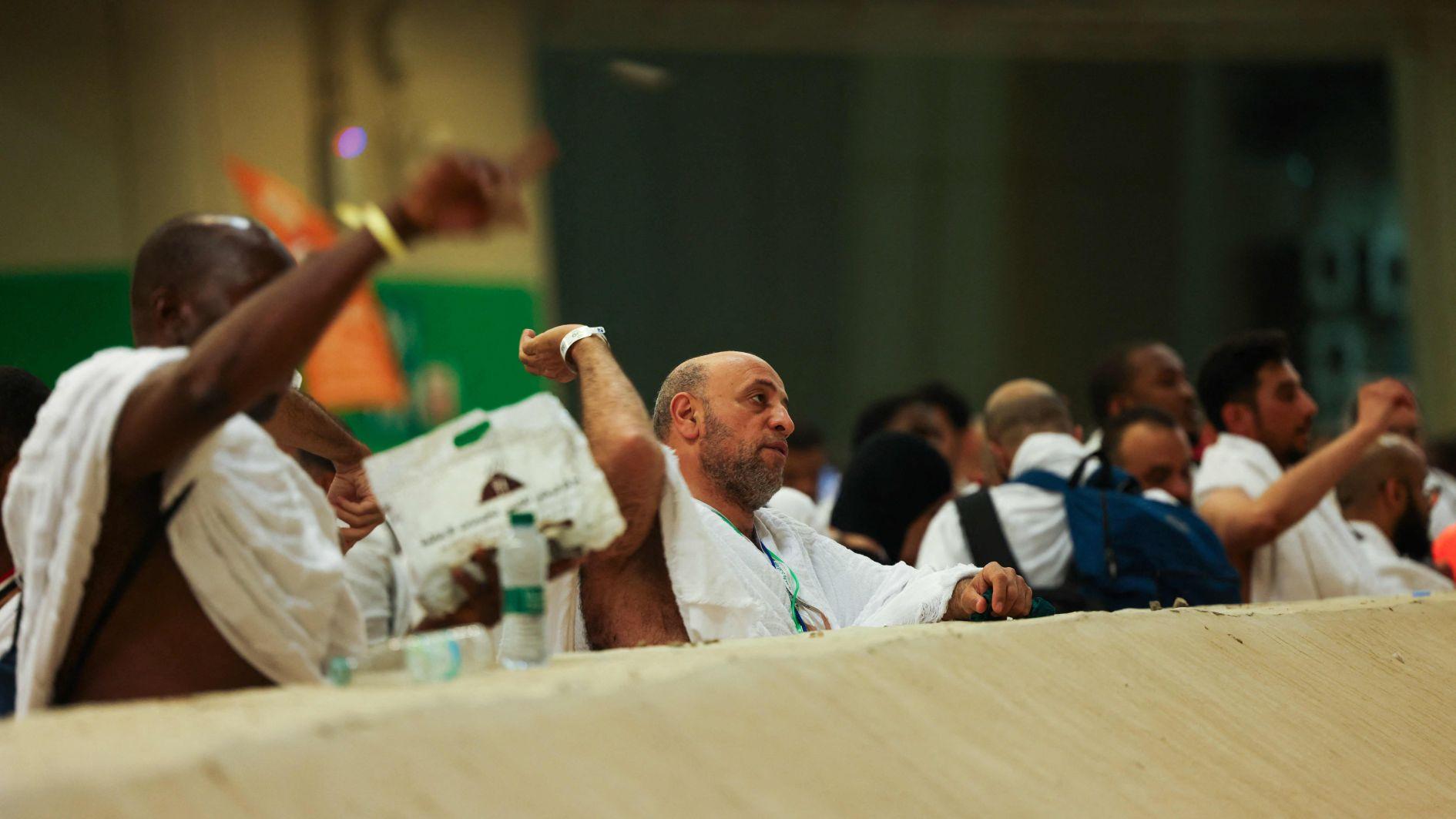
Pilgrims performed the last major ritual of the Hajj, the "stoning of the devil," on June 6, as Muslims around the globe celebrated the beginning of the Eid al-Adha holiday.
Starting before day break, the more than 1.6 million Muslims taking part in the pilgrimage threw seven stones at each of three concrete walls symbolizing the devil in the Mina valley, on the outskirts of the holy city of Mecca.
Droves of pilgrims had already set out of their camps and accommodations in the sprawling tent city in Mina before dawn, taking advantage of the shade and cool temperature.
The ritual commemorates Abraham's stoning of the devil at the three spots where it is said Satan tried to dissuade him from obeying God's order to sacrifice his son.
"Our experience in Mina was easy and simple. We entered and within five minutes we had completed the stoning of the devil at the 'Jamarat'," said 34-year-old Wael Ahmed Abdel Kader, from Egypt, after carrying out the ritual at dawn.
Howakita, a pilgrim from Guinea, said the prospect of celebrating Eid in Mecca filled her with joy.
"When I threw the stones I felt at ease. I was truly proud," she said.
A day earlier, pilgrims converged on Mount Arafat, praying and reciting Koranic verses at the 70-meter rocky rise near Mecca, where the Prophet Mohammed is believed to have given his last sermon.
Many climbed the mount despite the searing heat, though numbers had thinned by midday following official warnings for pilgrims to stay inside between 10 a.m. and 4 p.m.
This year's Hajj saw authorities implementing a range of heat mitigation efforts alongside a wide-ranging crackdown on illicit pilgrims, resulting in noticeably thinner crowds and a heavy security presence at holy sites in Mecca and surrounding areas.
The measures were aimed at preventing a fatal repeat of last year's Hajj that saw 1,301 people die in temperatures that hit 51.8 degrees Celsius.
Saudi authorities said a majority of those deaths were among pilgrims who illegally snuck into Mecca and lacked access to accommodation and other services aimed to keep pilgrims safe and protected from the searing desert heat.
This Hajj season has recorded the lowest number of pilgrims in over three decades, barring the years of COVID restrictions from 2020-2022.
Last year, 1.8 million Muslims took part in the Hajj, according to official figures.
Hajj permits are allocated to countries on a quota basis and distributed to individuals by a lottery system.
But even for those who can secure them, the high costs spur many to attempt the Hajj without a permit, even though they risk arrest and deportation if caught.
The stoning ritual in the Mina valley was the scene of a fatal stampede in 2015, when 2,300 people were killed in one of the deadliest Hajj disasters.